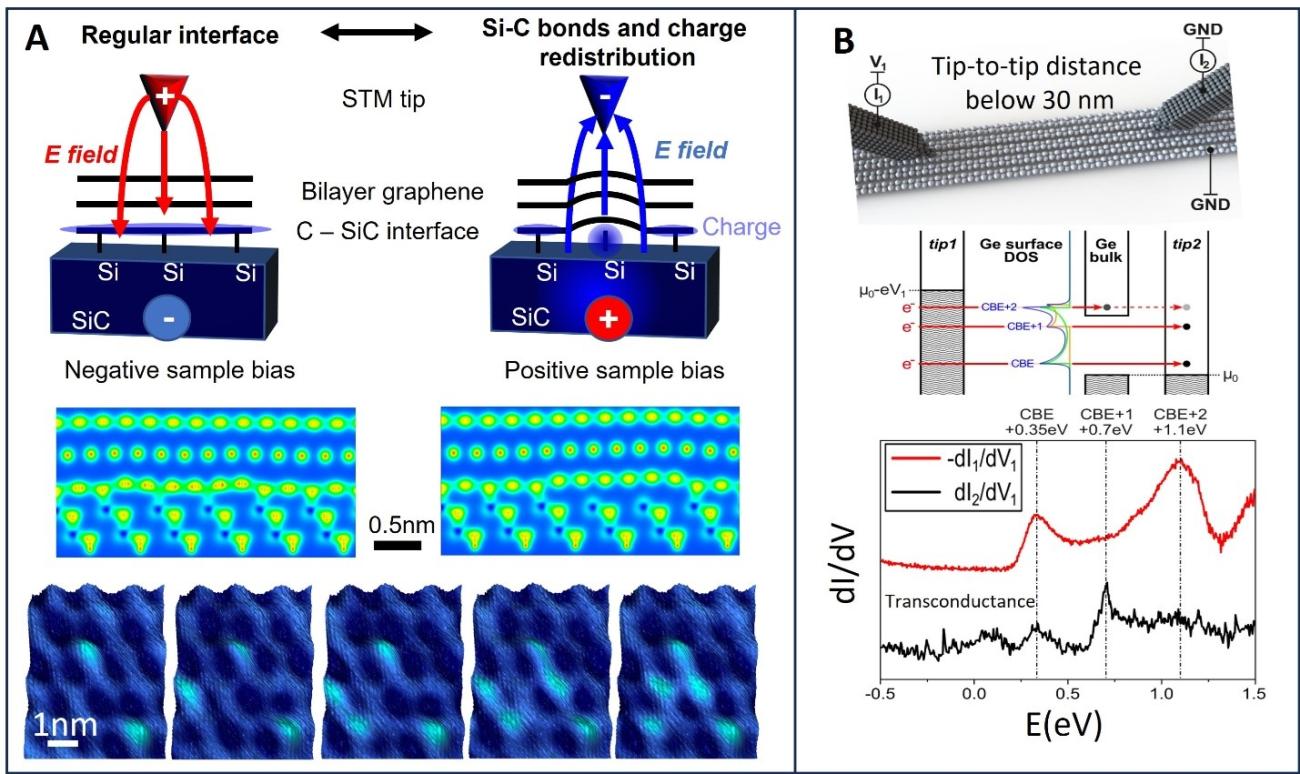
DOE Early Career Research Program, FY 2025 – FY 2029
The state-of-the-art, precise, and rational synthesis of low-dimensional quantum materials realizes the emergent properties that derive from controlling their exact atomic-level architectures. However, the functionality that results from such atomic-scale control of quantum materials requires similar precision in developing local addressing tools for its practical realization. In this case, scanning tunneling microscopy (STM) -based techniques are the first methods for atomically precise mapping of local topography, distribution of electronic or spin density of states. On the other hand, a knowledge gap exists between the characterization of given nanosystems and testing their expected functional properties, even in prototypical applications. As a result, a common problem exists: how to understand the relation between the local signatures of the emerging quantum properties, e.g., in the density of states from the STM experiment, and the mesoscale quantum behavior, e.g., in electronic transport?
The program's overarching goal is to address this gap and propose a rational approach to understanding functionality in low-dimensional graphene-based quantum materials. The program combines atomically precise on-surface synthesis strategies and in situ advanced scanning probe microscopy-based methods to reveal the origins of their mesoscale characteristics. These complementary activities are based on our unique expertise in (1) atomically precise synthesis of graphene-based quantum materials, i.e., on substrates providing electronic decoupling, and (2) developing STM-based techniques, including atomically precise multi-probe scanning tunneling microscopy and spectroscopy.
Project Members:
Principal Investigator: Marek Kolmer
Scientific Support Staff: Umamahesh Thupakula
Postdoc: Salma Khatun
